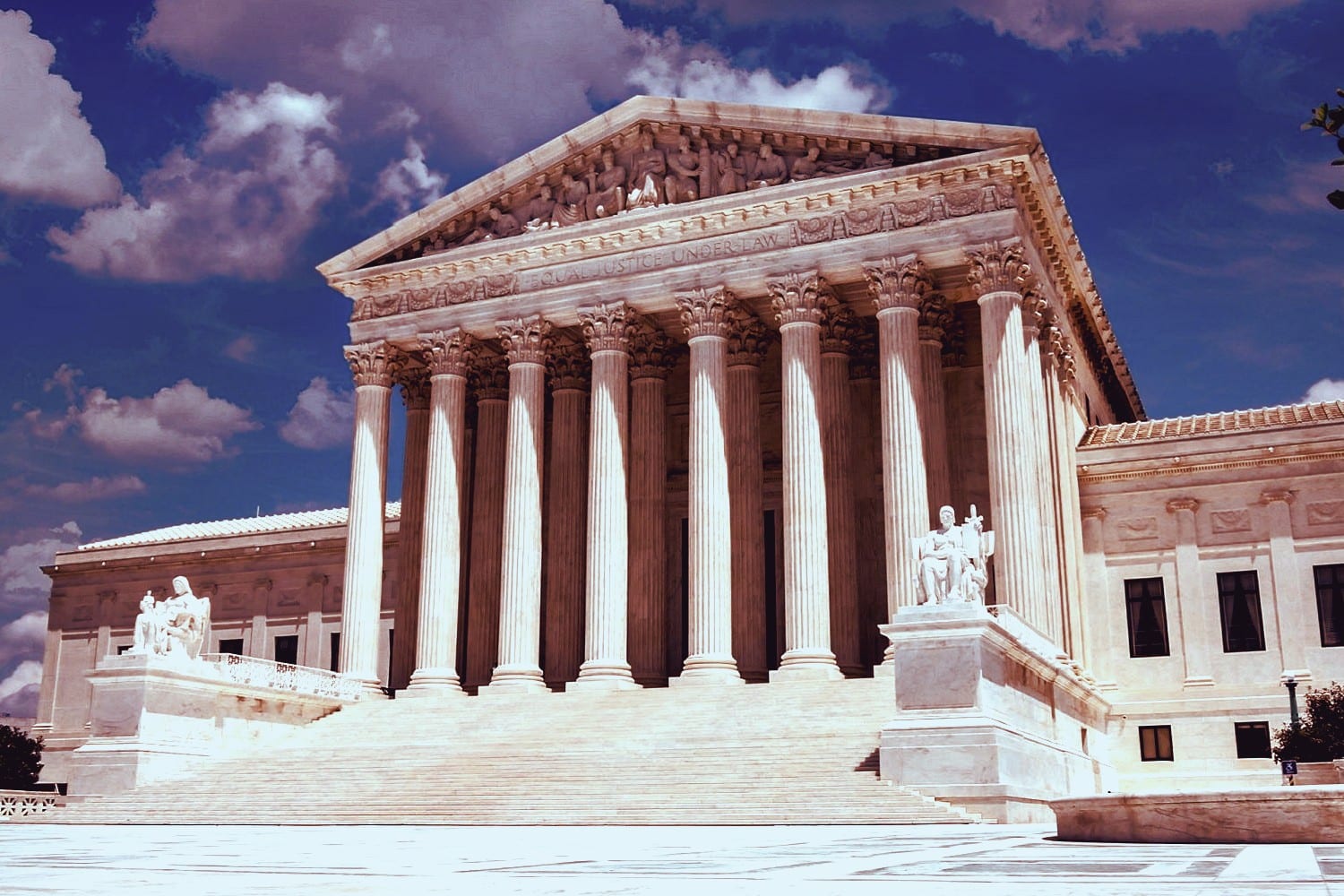Harvie Wilkinson Tries To Salvage Trump v. US
Every bad thing that has happened during this lawless administration can be traced to the execrable decision of John Roberts and the Trump Clique in Trump v. US. That certainly includes the rendition of Kilmar Albrego Garcia to a notorious prison in El Salvador; he’s been moved to another prison there. Trump and his henchmen believe that they can lever that decision to justify their outrageous goals. Step one: claim there’s an emergency. Step two: issue a proclamation. Step Three: everything is now just the energetic, vigorous executive dealing with the emergency.
In this case, the “emergency” is the invasion of the US by gangs from Venezuela under the control of an evil dictator. Step two is the invocation of the Alien Enemies Act. Step three is the sudden rendition of several hundred people to foreign prisons, denial of due process required by the Constitution and laws of the US, demands that the Department of Justice defend the action without regard to ethical obligations of all lawyers, and refusal to comply with Court orders. Albrego Garcia isn’t a member of the evil gang but so what? Mistakes happen when you’re being vigorous and energetic.
When Roberts and the Trump Clique saved Trump from accountability in Trump v. US, they never imagined that he might turn on them and on the judiciary so ferociously that the wimp Roberts was forced to issue a limp statement defending the rule of law and the judiciary.
Harvie Wilkinson of the Fourth Circuit is trying to show Roberts his error. In his order slapping down the government’s attempt to avoid accountability for its illegal abduction of Abrego Garcia. Wilkinson writes:
“Energy in the [E]xecutive” is much to be respected. FEDERALIST NO. 70, at 423 (1789) (Alexander Hamilton) (Clinton Rossiter ed., 1961). It can rescue government from its lassitude and recalibrate imbalances too long left unexamined. The knowledge that executive energy is a perishable quality understandably breeds impatience with the courts. Courts, in turn, are frequently attuned to caution and are often uneasy with the Executive Branch’s breakneck pace.
And the differences do not end there. The Executive is inherently focused upon ends; the Judiciary much more so upon means. Ends are bestowed on the Executive by electoral outcomes. Means are entrusted to all of government, but most especially to the Judiciary by the Constitution itself.
For Wilkinson this is prelude to a discussion of the need for respect between the executive and the judiciary, for which he makes an extraordinary plea.
The reference to Federalist No. 70 is a polite call-back to Trump v. US:
The Framers “sought to encourage energetic, vigorous, decisive, and speedy execution of the laws by placing in the hands of a single, constitutionally indispensable, individual the ultimate authority that, in respect to the other branches, the Constitution divides among many.” Clinton v. Jones, 520 U. S. 681, 712 (1997) (Breyer, J., concurring in judgment). They “deemed an energetic executive essential to ‘the protection of the community against foreign attacks,’ ‘the steady administration of the laws,’ ‘the protection of property,’ and ‘the security of liberty.’ ” Seila Law, 591 U. S., at 223–224 (quoting The Federalist No. 70, p. 471 (J. Cooke ed. 1961) (A. Hamilton)). The purpose of a “vigorous” and “energetic” Executive, they thought, was to ensure “good government,” for a “feeble executive implies a feeble execution of the government.” Id., at 471–472.
Roberts, whether out of naiveté or ideological fervor, in substance removed the possibility of judicial control over egregious violations of law. Sonia Sotomayor, writing for the minority, pointed to the mendacity of Roberts’ citation of Federalist No. 70:
The majority’s single-minded fixation on the President’s need for boldness and dispatch ignores the countervailing need for accountability and restraint. The Framers were not so single-minded. In the Federalist Papers, after “endeavor[ing] to show” that the Executive designed by the Constitution “combines ,,, all the requisites to energy,” Alexander Hamilton asked a separate, equally important question: “Does it also combine the requisites to safety, in republican sense, a due dependence on the people, a due responsibility?” The Federalist No. 77, p. 507 (J. Harvard Library ed. 2009). The answer then was yes, based in part upon the President’s vulnerability to “prosecution in the common course of law.” Ibid. The answer after today is no.
Reading Wilkinson in this light shows how he is telling Roberts and the Trump Clique they screwed up and must remedy that by asserting the requirement that energy be restrained and explaining how that restraint is to be enforced. In her dissent in Trump v. US, Ketanji Brown Jackson explains what the idiot majority missed:
Here, I will highlight just two observations about the results … . First, the Court has unilaterally altered the balance of power between the three coordinate branches of our Government as it relates to the Rule of Law, aggrandizing power in the Judiciary and the Executive, to the detriment of Congress. Second, the majority … undermines the constraints of the law as a deterrent for future Presidents who might otherwise abuse their power, to the detriment of us all.
Wilkinson agrees with Jackson at least on the first point. The executive is focused on ends, he says, while the judiciary is focused on means to the end. He says means are set by all three branches of government. He thinks the judiciary is primarily responsible for insuring that the executive is limited to the means provided by law, which leads him to put the judiciary first. But he implicitly acknowledges the role of the legislature in setting allowable means through laws. This too follows from both Federalist Nos. 70 and 77, which emphasize the power of the people acting through popularly elected legislatures as the protector of the safety of the people from tyrants.
Others have pointed out that Wilkinson is a conservative, and a respected jurist. His opinion should be read as a direct challenge from Roberts’ own ideological team to the foolish decision in Trump v. US. With the astonishing action of SCOTUS in the wee hours today, that message may be starting to sink in for some members of the Trump Clique.




